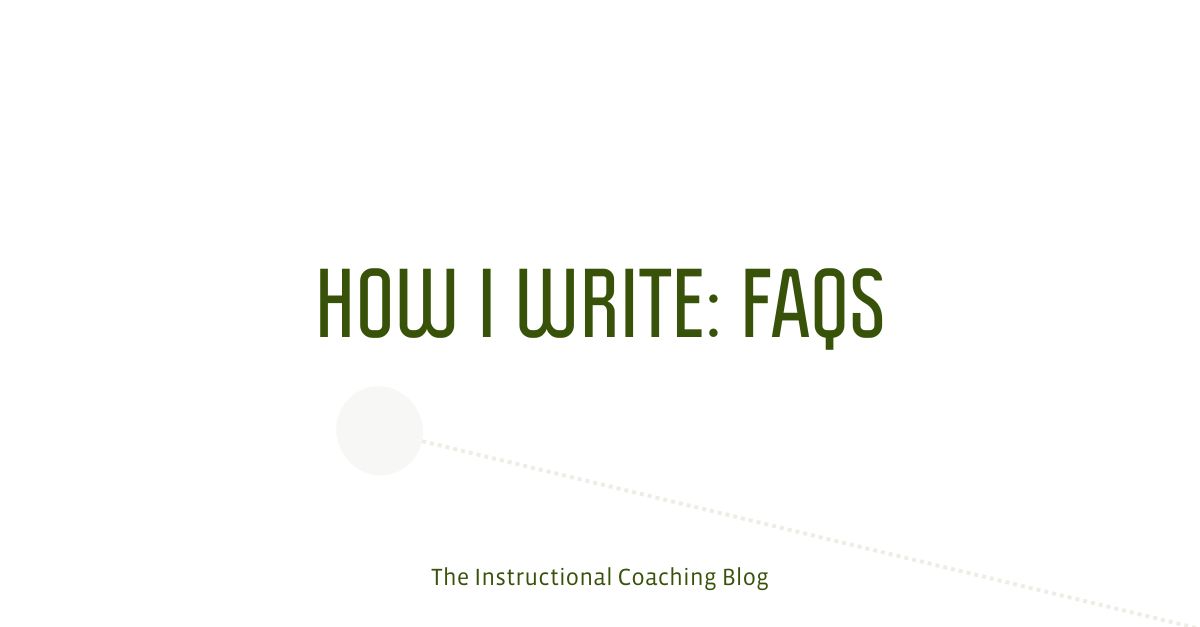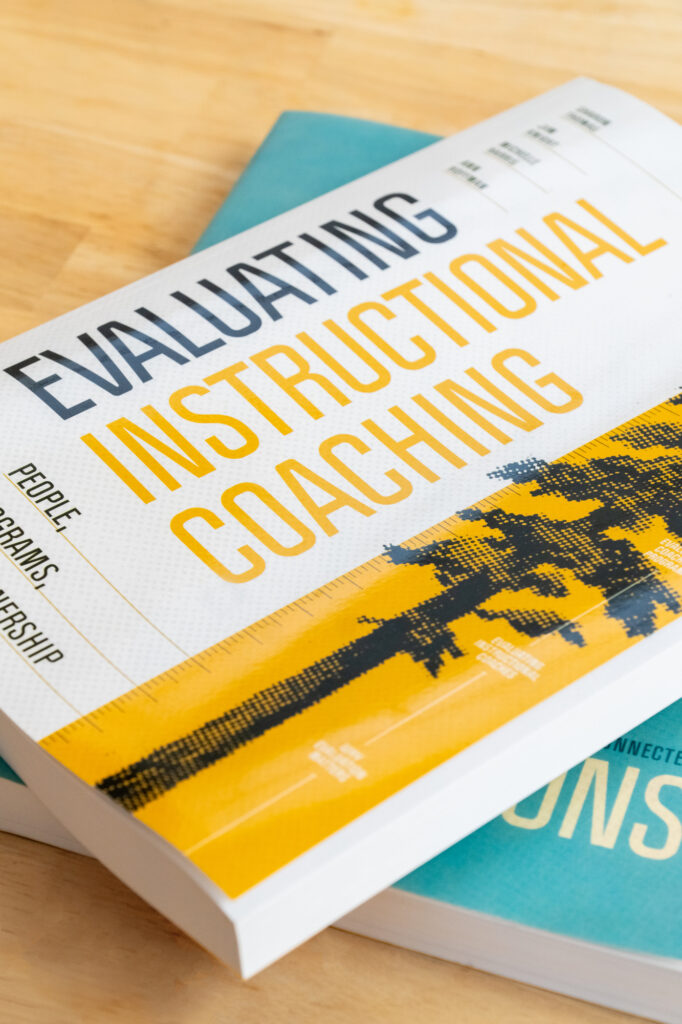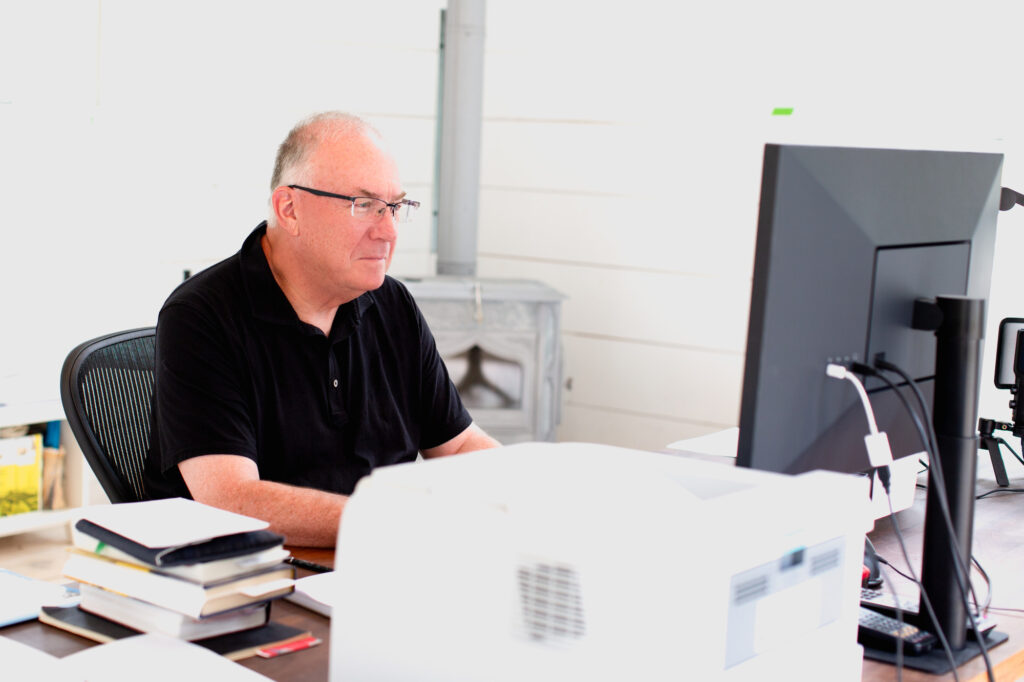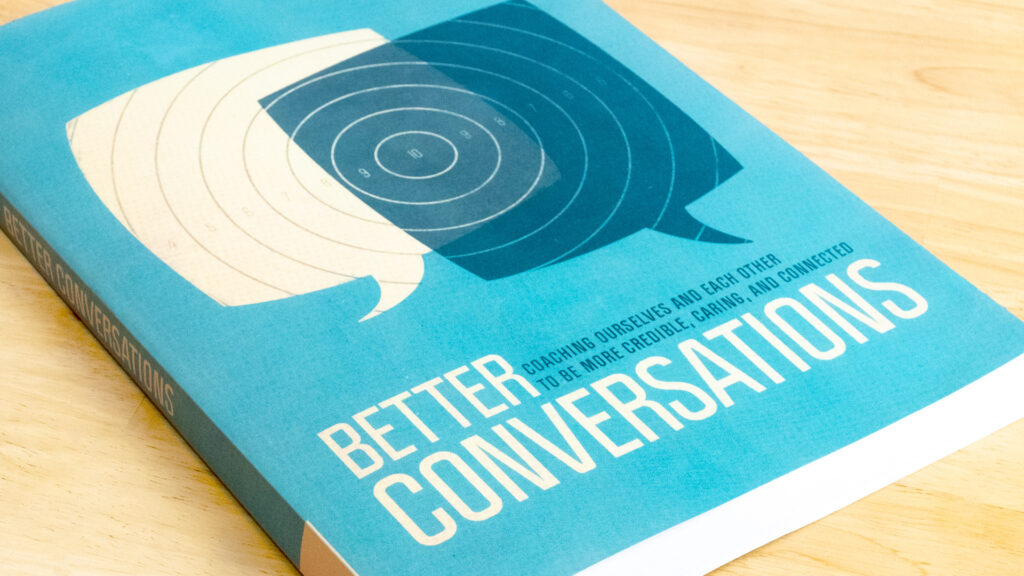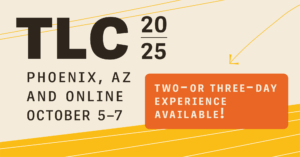It seems like Jim Knight is always writing a new book, research article, or even just notes in the books on his shelves. Today, we’ll use some commonly asked questions to break down Jim’s writing process and to glean some tips for fellow writers.
When you think of writing, what’s the first thing you think about?
I don’t know that there is any one thing I think about. It’s kind of like riding a bicycle or lacing up your running shoes or playing an instrument. It’s just a thing I do. I wish I could be more habitual about it – where I set aside time. I try to do that, but things get in the way.
Sometimes, it’s enjoyable, but other times it’s difficult. I would love to write like Atul Gawande, but I write like me. Writing is a clumsy thing to do, but I look forward to it and am grateful for the chance to do it. It’s more craftsmanship than it is inspiration.
You can’t wait for inspiration. I might have 30 minutes, and I’ve got to get writing. I might not get anything accomplished. If I only write when I’m inspired, then I won’t get much done. So, wherever I am, whatever the situation is, I need to write.
Tip for writers
You have to do it to get inspired. You don’t have to wait to get inspired to do it.
Do you have a process? Do you approach all writing the same way? (books, articles, blog posts, etc.)
I don’t have a specific process – just a set of strategies.
I start by just trying to get stuff down on paper. I want to get something out, so I don’t really think about the quality of it. To me, writing is more about editing than anything else.
Every time I start writing, I go back to the beginning of the piece and start editing over again. I rework the earlier parts, and then I get to the part where I have to write new words. It’s kind of like training for a marathon. Every week, your long run is a mile or two longer. So, everything is pretty easy until I get to adding the new stuff.
I have several other approaches, depending on what I’m writing.
I do a lot of mapping, like the learning maps at the beginning of my book chapters where I map out the content. I might do that even for a paragraph. I probably write 50 or more maps per chapter.
Usually, things I write are trying to synthesize ideas, but sometimes, I’ll go deep into a topic. While working on my upcoming book, The Definitive Guide to Instructional Coaching, my workspace was covered with books more than 50 books. I hadn’t read every book all the way through. Some of them were kind of new to me. Others, I knew well. I would look for everything they had to say about listening, for example, and put it on index cards. I set out all the index cards in front of me, moved the cards around, and created an outline.
Index cards work really well for organizing your research. Mapping works really well for structuring how the pieces go together. The way your brain works to create a map is more like doodling. And the way your brain works to organize your index cards is more like creating an outline.
Tip for writers
Having different ways of thinking or different ways of information processing is really helpful to keep things moving forward.
How do you choose and develop new projects?
The simple answer is that everything is a response to an issue. It’s really driven by a desire to ensure excellent instruction, every day, in every class, for every student. The books, articles, and other resources all bring us closer to realizing that vision.
Another way of looking at it is through the concept of Ikigai, considering the questions:
- What do I love to do?
- What does the world need?
- What am I good at?
- What I can get paid for?
Sometimes, you land in one of those areas more than others. Other times, you write the book you need to read. Ultimately, there is a point at which I step back and ask myself, “Do I want to spend two years of my life on this project?”
Tip for writers
The first book marks you. You need to think carefully about what that first book is going to be because all of your subsequent books can be categorized with it, even if they don’t share a subject.
How do you edit your work?
I want sentences to be as simple as possible – not simplistic. I want it to be clear. I always want the subject to be at the start of the sentence and the verb to be very clear. I don’t want to turn the verb into a noun. I ask myself, “Can I make this sentence shorter?” I like vivid examples. I also try to stay away from cliches and find other ways of putting things.
It’s nice to find something that’s intellectually pleasing. Malcolm Gladwell talks about candy for the reader, sort of little explosions of interest – where you read it and think, “Oh, that’s cool. I didn’t know that.”
Tip for writers
As Kurt Vonnegut says, “Don’t bore the reader.”
Do you keep a journal or any other kind of ongoing, informal notes about unrelated topics?
When I’m traveling, I take notes in a Moleskine. I saw Salman Rushdie talk about writing, and he does it all on his phone now. I thought, “Geez, maybe I should do that too.” I have a lot of notes in books. A book that really influenced me is Peter Block’s Stewardship. I highlighted sections and made notes. Now I use the Kindle app, and I can copy and paste quotations.
I have summaries of a couple hundred books, loosely organized. Bill Sommers has created and sent me countless summaries. I use Blinkist to go back and look at them. So, I may not remember a whole book at any given time, but I have different ways of keeping track of all the information.
I also listen to audiobooks. I try to look at the book from a number of different ways, but I also want some kind of a record. A year later, two years later, I’m probably not going to remember that much without some kind of summary to go back to.
Tip for writers
Use a tool like Blinkist to easily reference concepts and information from your reading.
How has your writing style or approach changed since you first started writing?
I’ve changed completely. I was living in Banff, Alberta – I would have been around 19 – and somebody asked me what I wanted to be. I told them I’d like to be a writer. She said, “That’s interesting. Most writers I know write.” I wasn’t doing any writing. I liked the idea, but I wasn’t actually writing anything. So, I’ve learned over time to stick with it, to be disciplined, to be more habitual in what I do.
When I was an undergraduate, I was very insecure. I had never been a very good student. I was a good reader, loved to read, and went to school having read a lot of contemporary fiction writers, but I thought I had to look smart. So, I relied heavily on references. I was trying to look smart in my writing, and it was really, really hard work.
After I came to KU to do my doctorate, I learned that the purpose of writing is to be clear and to communicate. Still, I was pretty slow. When I wrote Instructional Coaching, it was a long, slow process. It took a couple of years, and I originally thought the book was going to be about giving presentations when I first threw the idea out to my publisher.
I’ve developed a lot of strategies, but there’s also a spiritual element in the sense that my writing is an attempt to connect with several universal truths:
- an attitude of benevolence to others
- the common bond between humanity
- the power of loving relationships
- the necessity of learning
What I’m trying to do in writing is to connect with those universal truths in an authentic way that it brings people together. Then it becomes something more than just, “Oh, here’s a checklist on how to do Think, Pair, Share.”
Tip for writers
Stay disciplined, communicate clearly, and try to connect with universal truths.
Can you recommend some favorite books about writing?
Bird by Bird by Anne Lamott
Several Short Sentences About Writing by Verlyn Klinkenborg
On Writing by Stephen King
The Writing Life by Annie Dillard
The War of Art by Steven Pressfield
